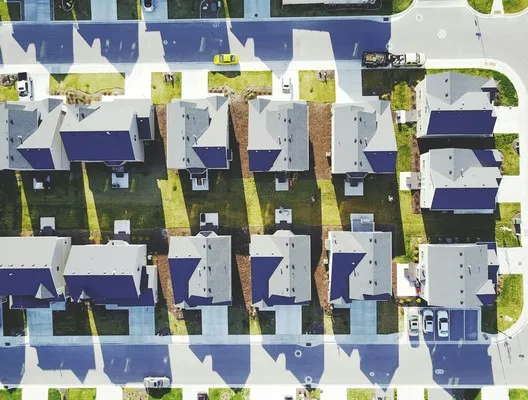Urbanism is a broad term that refers to the study and practice of how cities and urban spaces are organized, designed, and inhabited. The rapid growth of cities has made urbanism a crucial field in understanding social, economic, political, and cultural transformations in modern society. While urbanism may often seem to focus on the physical attributes of cities—such as their buildings, streets, and infrastructure—at its core, it is fundamentally about human relationships, social interactions, and the power dynamics that unfold within these spaces. Urbanism is not only a study of spatial forms but also of the social processes that occur within these forms. Therefore, the concept of urbanism encompasses both the material and symbolic aspects of cities.
Urbanism goes beyond the mere study of urban geography or architecture. It involves examining how different groups of people coexist in urban spaces and how these spaces shape and are shaped by social norms, economic practices, political decisions, and cultural traditions. Urbanists often consider the city as a microcosm of society, where issues such as inequality, globalization, migration, and environmental sustainability manifest in particularly visible ways. This makes urbanism a highly interdisciplinary field, intersecting with sociology, geography, political science, economics, anthropology, and urban planning. Understanding urbanism is critical for analyzing the broader transformations of human societies in the 21st century.
Historical Development of Urbanism
Urbanism as a concept has its roots in the rise of cities and the increasing significance of urban spaces in human history. Early civilizations like Mesopotamia, Ancient Egypt, and the Indus Valley saw the birth of cities as centers of trade, culture, and political power. However, it was the industrial revolution of the 19th century that triggered the mass urbanization of human populations, as cities grew rapidly in size and economic importance. The influx of people to urban areas during this period led to significant changes in social structures, economic systems, and the physical design of cities. Urban sociology, as a formal academic discipline, emerged during this time to address the new social dynamics brought about by industrial urbanization.
One of the most influential early figures in urban sociology was Georg Simmel, whose essay “The Metropolis and Mental Life” (1903) examined the psychological effects of living in large cities. Simmel argued that life in the metropolis produced a sense of detachment and indifference among individuals, a response to the overwhelming sensory stimuli and social interactions characteristic of urban environments. Meanwhile, the Chicago School of Sociology, led by scholars like Robert Park and Ernest Burgess in the early 20th century, studied cities as living organisms, mapping out patterns of social organization and spatial segregation. The Chicago School’s “concentric zone model” depicted the city as a series of rings, with different social groups occupying distinct zones according to their socio-economic status. These early theoretical frameworks laid the groundwork for contemporary urbanism, highlighting the complex relationship between the physical layout of cities and social interactions.
Urbanization and Social Change
Urbanization refers to the process by which populations move from rural areas to cities, leading to the growth of urban areas and the transformation of social life. Urbanization is one of the defining characteristics of modernity and continues to shape the social, economic, and political landscape of the world. It is driven by a variety of factors, including economic opportunities, migration, and the concentration of resources in cities. However, urbanization is not just a demographic shift; it also involves profound changes in social life, including shifts in social norms, cultural practices, and power relations.
One of the key social changes associated with urbanization is the decline of traditional social structures. In rural societies, social life is often organized around kinship, community, and long-standing cultural practices. In contrast, cities are characterized by greater social mobility, diversity, and individualism. This shift can lead to both opportunities and challenges. On one hand, cities offer individuals greater freedom to pursue their own interests, careers, and lifestyles. On the other hand, the anonymity and fragmentation of urban life can lead to feelings of alienation, isolation, and social disconnection. This tension between individualism and community is a central theme in urban sociology, as scholars seek to understand how people navigate the complexities of urban living.
The Urban Experience
Living in cities shapes individuals’ experiences in unique ways. Urban environments are often associated with greater cultural diversity, economic opportunities, and social interactions compared to rural areas. The city is a site of cosmopolitanism, where individuals from different cultural, ethnic, and socio-economic backgrounds come into contact with one another. This diversity can foster creativity, innovation, and new forms of social and cultural exchange. For example, cities are often the birthplace of new artistic movements, subcultures, and political activism, as individuals are exposed to a wider range of ideas, experiences, and worldviews.
However, the urban experience is also marked by significant social inequalities. Cities are often highly segregated spaces, with stark differences in living conditions, access to resources, and opportunities between different social groups. Wealthier neighborhoods may have better infrastructure, schools, and healthcare, while poorer areas may be characterized by overcrowding, inadequate housing, and higher levels of crime and unemployment. This spatial segregation reflects broader patterns of social inequality, as race, class, and gender often play a significant role in determining where individuals live and the quality of their urban experience. Urbanists are particularly interested in how these inequalities are produced and maintained in urban spaces, as well as the potential for cities to become more inclusive and equitable.
The Politics of Urban Space
Urban space is not neutral; it is shaped by political decisions, economic interests, and social struggles. Cities are sites of power, where different actors—such as governments, corporations, and social movements—compete to control and shape the built environment. Urban politics involves decisions about land use, zoning, housing, transportation, and public services, all of which have significant social and economic consequences. For example, the construction of highways and luxury condominiums can displace low-income communities, while decisions about public transportation can either connect or isolate different parts of the city.
The concept of “the right to the city,” first articulated by French sociologist Henri Lefebvre in 1968, has become a key framework for understanding the politics of urban space. Lefebvre argued that urban space should be democratically controlled by its inhabitants, rather than being subject to the interests of private capital or the state. This idea has been taken up by contemporary urban social movements, which seek to challenge gentrification, housing inequality, and the privatization of public spaces. The politics of urban space is a central concern of urbanism, as it raises questions about who has the power to shape the city and whose interests are prioritized in the process of urban development.
Gentrification and Urban Transformation
Get the full article AD FREE. Join now for full access to all premium articles.
View Plans & Subscribe Already a member? Log in.





